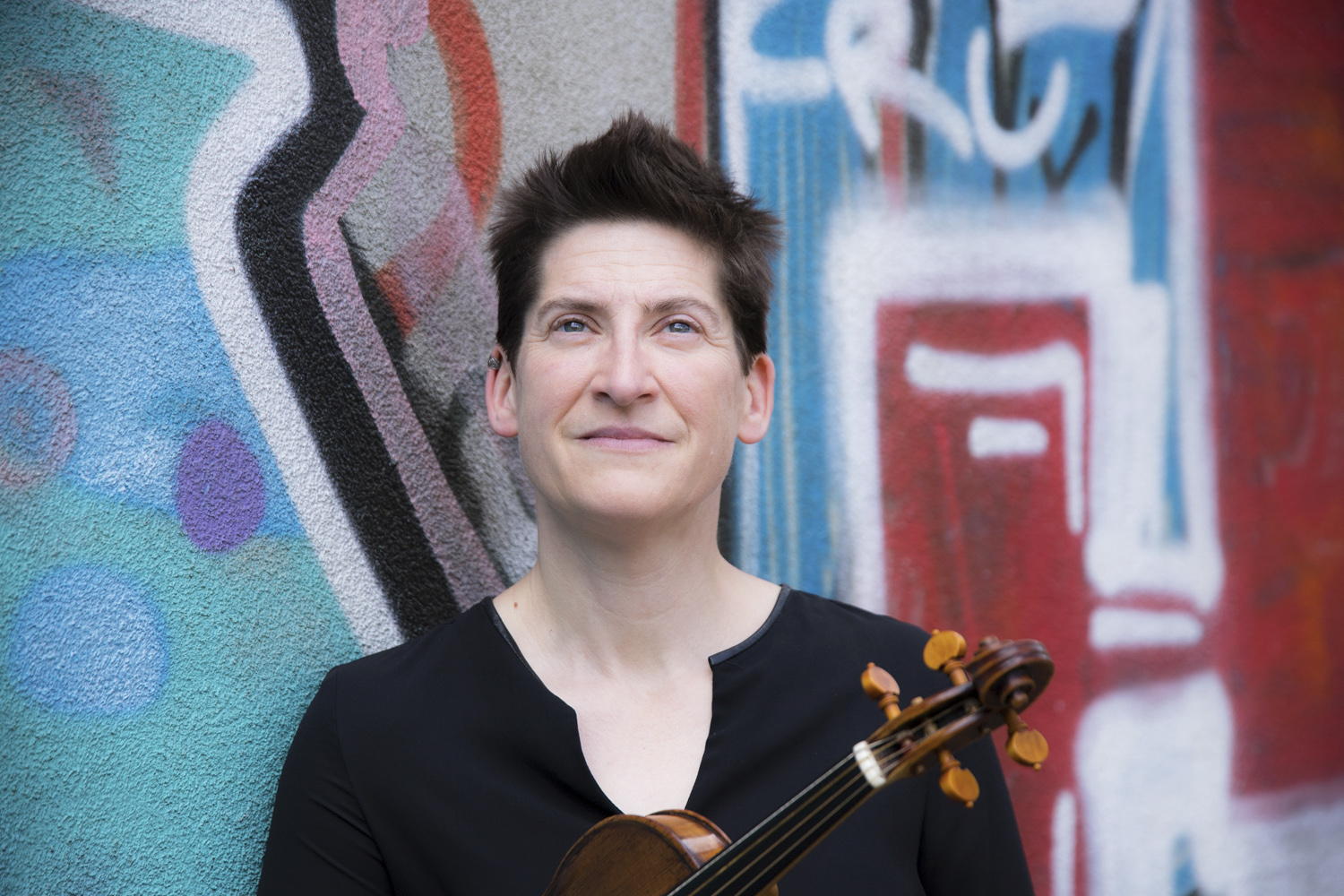#vl_looper
Concerts
Venezianische MesseAnima Shirvani
Nathan-Söderblom-Kirche, Reinbek
Anima Shirvani
Rachel Harris

Swedish born Rachel Harris began her baroque violin studies at the Welsh College of Music and Drama with Clare Salaman followed by a postgraduate at the Royal College of Music with Alison Bury. She continued her postgraduate studies in Trossingen and Würzburg, Germany, where she concluded her studies with Gottfried von der Goltz (Freiburger Barockorchester). She also plays the viola, viola d’amore and variously sized viols. In her free time she plays the horn.
One main focus of her work is to create new music and sound-worlds using her baroque violin, many different baroque/modern instruments (prerecorded, all played by herself) and electronic equipment. These include a looper, digital delay, vocal harmonist and natural sounds altered using Audacity. The idea of combining a 300 year old violin with modern electronics, a “baroque” performance style with own compositions and modern/historic sound-worlds, has sparked great interest. Various collaboration projects are planned for 2025, including with vocal ensembles, traditional Scottish storytelling as well as juxtaposing Bach’s Art of Fugue played on historically informed instruments with own compositions.
Her pieces can be heard on her youtube channel (click here), where there are also explanations of some of the other instruments she uses.
As a baroque violinist, she has been member of the English chamber music ensemble The Brook Street Band since 1997 as well as performing as a soloist with la festa musicale, La Ninfea, Cantus Cölln, Freiburg Baroque Orchestra, Balthasar-Neumann-Ensemble, and Lautten Compagney Berlin. She is the leader and director of Ensemble Schirokko Hamburg, which she formed in 2007. She has produced numerous CDs with both ensembles to critical acclaim.
In 2017 she released her solo CD »augustes auspices«, a complete recording of J.S. Bach’s solo Sonatas and Partitas, as well as J.P. von Westhoff’s six Suites for solo violin.
She has written a “Guidelines for playing in an orchestra“. These guidelines are aimed at string players in the early music scene and focus on orchestral technique and codes of practise.
Rondo magazine: “great enthusiasm and spontaneity … dexterity and intellect … perfect technique”
Contact me
If you contact us, your details will be saved so that they can be used to process and answer your request. This data will not be passed on to third parties without your consent. You can find more information about the handling of your data in our Data protection declaration.